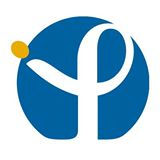Request Demo
Last update 08 May 2025
Gastric adenoma
Last update 08 May 2025
Basic Info
Synonyms Adenoma of Stomach, Adenoma of the Stomach, Gastric Adenoma + [8] |
Introduction A neoplastic polyp that arises from the stomach. This category includes intestinal-type adenomatous polyps, gastric-type adenomas, and fundic gland polyps. |
Related
1
Drugs associated with Gastric adenomaTarget |
Mechanism TRPA1 agonists [+1] |
Active Org. |
Originator Org.- |
Active Indication |
Inactive Indication |
Drug Highest PhaseApproved |
First Approval Ctry. / Loc.- |
First Approval Date20 Jan 1800 |
72
Clinical Trials associated with Gastric adenomaJPRN-jRCTs061230040
An exploratory study to evaluate the detection ability of photodynamic endoscopic imaging for differentiated gastric cancer and gastric adenoma in patients with current or past Helicobacter.pylori infection: a multicenter in terventional study
Start Date31 Aug 2023 |
Sponsor / Collaborator- |
NCT05854368
Circulating Biomarker Signatures for the Detection of Gastric Preneoplasia and Cancer
The goal of this study is to characterize and validate a signature of circulating biomarkers in plasma, associated with the presence of gastric preneoplasia in patients with preexisting gastric lesion compared with a control group.
For this purpose:
* Patients with pre-existing gastric lesions will be invited to participate to this study. If they are willing to participate an additional blood sample (10mL) will be collected at the time of the blood collection performed during their routine care
* Healthy subjects will be invited to participate to constitute the control group. If they are willing to participate a blood sample (10 ml) will be drawn specifically for this study
For this purpose:
* Patients with pre-existing gastric lesions will be invited to participate to this study. If they are willing to participate an additional blood sample (10mL) will be collected at the time of the blood collection performed during their routine care
* Healthy subjects will be invited to participate to constitute the control group. If they are willing to participate a blood sample (10 ml) will be drawn specifically for this study
Start Date03 Jul 2023 |
Sponsor / Collaborator  Institut Pasteur Institut Pasteur [+1] |
ChiCTR2200061717
Effect of weifuchun on JAK2/STAT3 pathway in gastric precancerous lesions
Start Date15 Jul 2022 |
Sponsor / Collaborator- |
100 Clinical Results associated with Gastric adenoma
Login to view more data
100 Translational Medicine associated with Gastric adenoma
Login to view more data
0 Patents (Medical) associated with Gastric adenoma
Login to view more data
728
Literatures (Medical) associated with Gastric adenoma01 Aug 2025·Biochimica et Biophysica Acta (BBA) - Molecular Basis of Disease
The role of the tumor microenvironment and inflammatory pathways in driving drug resistance in gastric cancer: A systematic review and meta-analysis
Review
Author: Albano, Francesco ; Calice, Giovanni ; Falco, Geppino ; Severini, Francesca Lospinoso ; Notarangelo, Tiziana ; Zoppoli, Pietro
01 May 2025·Gastric Cancer
Multiple metachronous foveolar-type gastric adenomas in a Helicobacter pylori-naïve patient with long-term use of a proton pump inhibitor: a case report
Article
Author: Kushima, Ryoji ; Fujiwara, Aya ; Ogawa, Sayaka ; Kohge, Naruaki ; Yamanouchi, Satoshi ; Shibagaki, Kotaro ; Fujishiro, Hirofumi ; Miyake, Tatsuya ; Mishiro, Tsuyoshi ; Ishihara, Shunji ; Ohnuma, Hideyuki ; Hino, Takanobu ; Tsukano, Kousuke ; Tanaka, Masaki ; Ishimura, Norihisa ; Miyaoka, Yoichi ; Omachi, Taisuke
01 Apr 2025·JGH Open
Characteristics of Superficial Gastric Neoplasms Detected Not by White Light Imaging but by Linked Color Imaging
Article
Author: Tsuzuki, Yoshikazu ; Yamaoka, Minoru ; Imaeda, Hiroyuki ; Matsumoto, Hisashi ; Shiomi, Rie ; Miyaguchi, Kazuya ; Hirooka, Nobutaka ; Nakamoto, Hidetomo ; Ohgo, Hideki
Analysis
Perform a panoramic analysis of this field.
login
or

AI Agents Built for Biopharma Breakthroughs
Accelerate discovery. Empower decisions. Transform outcomes.
Get started for free today!
Accelerate Strategic R&D decision making with Synapse, PatSnap’s AI-powered Connected Innovation Intelligence Platform Built for Life Sciences Professionals.
Start your data trial now!
Synapse data is also accessible to external entities via APIs or data packages. Empower better decisions with the latest in pharmaceutical intelligence.
Bio
Bio Sequences Search & Analysis
Sign up for free
Chemical
Chemical Structures Search & Analysis
Sign up for free
